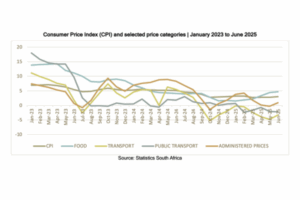Gender-Based Violence (GBV) is violence directed against a person because of their gender; or violence that affects persons of a particular gender disproportionately. GBV includes physical, psychological and sexual violence.
GBV is very difficult to talk about and is generally underreported in work and society at large. A union leader seeking to address gender-based violence needs to be able to create a sensitive and safe environment in which to discuss it. You can check out how the Labour Research Service supported trade unions in the health and education sectors to create safe spaces for discussing and addressing GBV in their workplaces.
In 2019 the International Labour Organisation (ILO) adopted the ILO Convention 190 on the Elimination of Violence and Harassment in the world of work. Popularly known as C190, the convention is a game-changer and recognises two major things:
- that the definition of the workplace in existing laws and regulations is very narrow. Violence and harassment can occur during travel to and from work, at social events related to work, or while dealing with customers and third parties outside of the physical workplace.
- that there are particularly vulnerable groups of workers, including workers in health, transport, education and domestic work, and those working at night or in isolated areas.
Bargaining issues
Some of the issues we can consider as part of our collective bargaining strategy include:- Occupational health and safety (OHS) committees should be involved in workplace safety planning.
- Paid leave for survivors of GBV.
- Access to women’s advocates and other designated support persons within the workplace.
- Sexual harassment policies and procedures.
Roles of the union negotiator
- Extend the bargaining agenda to include the issues at the intersection of the private area of family/home and the public area of work.
- Chip away at deeply entrenched gender roles, norms and stereotypes in both the union and workplace.
- Ensure that employers take into account the care responsibilities of workers.
- Ensure that leave and hours of work are seen through a gender lens.
The role of the union in ending violence and harassment
Ending violence and harassment in the world of work is a union issue. Union leaders have the responsibility of creating awareness inside the union. Unions should address how the rising levels of violence and harassment at work, working conditions and weakened labour rights correlate with the increasing casualisation of work. Some measures unions can take include:- Ensure work is safe for everyone. Protect the rights of all workers, including young women seeking employment.
- To break the barriers of silence and isolation often associated with gender-based violence, use the strength of the union in establishing connections and a sense of belonging amongst the members.
- Monitor workplace violence and identify the issues. Include these issues in the union’s bargaining agenda.
- Ensure collective agreements have clear language on workplace violence and measures for addressing it.
- Ensure negotiators know how to develop GBV-related clauses in collective agreements.
- Provide GBV education and resources to both the survivors and perpetrators at the workplace.
- Stay connected with the global movement and support the various GBV campaigns.
#RatifyC190 campaign
Trade unions have popularised C190 and got buy-in from employers and the government. The country is close to ratifying C190. Unions will remain vigilant to ensure the implementation of the convention and that workers understand it. The trade union federations, COSATU and FEDUSA, have campaigns focusing on the ILO convention. Unions have coordinated various awareness and advocacy campaigns, some through the male champions for gender equality initiative. The trade union movement is working together with their counterparts in the region to pressure African countries to ratify C190. Namibia, Somalia, Uruguay, Argentina, Ecuador, Fiji, Greece and Italy have ratified C190. By ratifying, the countries committed to applying the convention in their national contexts. Some collective agreements have clauses focusing on GBV. Gender coordinators can argue for the inclusion of LGBT+ workers’ rights in collective agreements and union policies.How employers can help
- Know the factors that increase the likelihood of violence and harassment against employees
- Take action and have documented measures of addressing GBV at the workplace
- Agree to GBV demands put forward by the union, for instance, offering transport for workers on night shift
ILO Convention 190: a game-changer in ending violence and harassment in the world of work
Six ways to end gender-based violence







